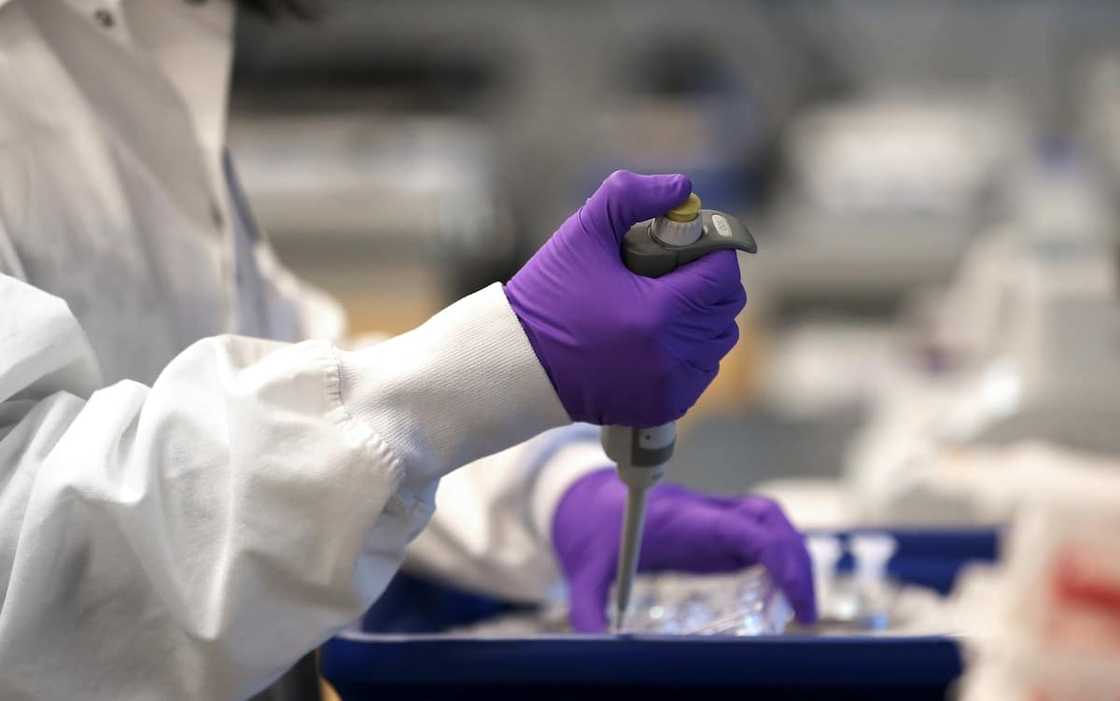Explainer: Doctor's advice on handling a Covid-19 infection at home
- Covid-19 cases are expected to drastically climb over the course of the next few months
- Dr Daniel Israel has weighed in with some advice on what to do should a family member test positive
- From educating small children to safely eating dinner, Briefly.co.za explores the General Practitioner's advice
PAY ATTENTION: Click “See First” under the “Following” tab to see Briefly.co.za News on your News Feed!
General Practitioner Dr Daniel Israel answers some frequently-asked questions around what to do if someone in your home tests positive for Covid-19.
We each treat our family as the safe zone. What a blessing this is, that in today’s world fraught with risks, influences and unhealthy environments, there is a space that exists where we can demask, expose and let be.
The surge of Covid-19 on our communities now places so many families in the difficult quandary of how to protect family members who are negative with a newly diagnosed Covid-19 loved one.
If my spouse has Covid-19, and we’re all young and healthy, why don’t we all just quarantine at home and get it?
This is the initial question to address to equip you handle this ordeal correctly. I’m confident that with the avalanche of information, it would now be certain in your mind if an elderly grandparent or a person with a co-morbidity lives in the family, this wouldn’t be a consideration.
Let’s examine a step further: how about a family that has no obvious ‘risk factors’? Once a member contracts the virus, can they just cocoon together and take the knock?
Unfortunately, international data has shown that 5% of deaths from coronavirus are in young healthy people with no risk factors. For morbidity statistics on a disease entity, 5% is high – a risk we would never consider. So, the challenge is set: how do you remain coronavirus negative while you live with someone who is positive?

Source: UGC
READ ALSO: Inquiry into Covid-19 corruption: Ramaphosa's R500 billion looted
What precautions do I take with our home quarantine?
Members of the family who have been in contact with the positive patient should start social distancing. There is no need to test anyone else yet. In fact, tests before 7 days since the infected patient became symptomatic are likely to show false negatives.
However, if new members of the family begin to experience symptoms, contact your GP: testing may be advised.
The bedroom
In an attempt to reduce close contact and transmission through surfaces, where possible, the patient should sleep in a separate room. Create a ‘sick room’ in your home. This room should be cleaned daily with bleach (one part of 5% bleach to nine parts of water). Whoever cleans the room must wear appropriate PPE during the cleaning.
The bathroom
A study in Wuhan in April 2020 printed in the bioRxiv journal showed significant positive Sars-cov-2 swabs from bathrooms in a hospital. Where possible, the Covid-19 positive patient in your home should have their own bathroom.
The bathroom must be cleaned down daily with disinfectant (containing bleach as above). If you need to share a bathroom, the surfaces need to be sterilised between each use.
The living room
Few homes have separate living rooms that can sustain pockets of isolation. Furthermore, families find it emotionally straining, having NO contact with an affected family member over this time.
The WHO recommends shared living space at a distance. If you are going to spend limited time together, do it in a ventilated room, at a distance of more than two metres with all members of the family wearing masks.
READ ALSO: Exclusive: Doctors explain how to handle testing positive for Covid-19
Meals
Meals promote viral shed. Families who eat together get Covid-19 together. Ideally, the affected patient should eat in his/her room, certainly with separate cutlery and crockery that are washed separately.
If this is emotionally straining, the patient should at least eat on the other side of the room with no sharing of food or utensils.
Laundry
Laundry must be done separately with the person doing the laundry wearing appropriate PPE. Hot water kills coronavirus off clothes, so clothes can be re-introduced into the family after washing.
Parenting
Young children may not be understanding of the rules of social distancing. We are encouraged by the evidence, thus far, that children don't spread coronavirus. The important goal should be to at least treat the coronavirus patient as 'sick' to the young child and encourage keeping a distance 'to stop germs.'
So now that I know how to remain negative, how do I keep my mind positive? This is all a little overwhelming…
Your opportunity to be resilient
Remember, your loved one is probably more scared than you are: scared of complications or death (even if they are unfounded); or scared of infecting you. It’s important that in the milieu of madness in your home, you are able to provide a framework of support.
The patient’s responsibility is focus on resting and recovery. This is your opportunity to dig deep into your resources of resilience and lead from the front.
READ ALSO: Umkhonto we Sizwe: 'Not wise' to keep schools open as Covid-19 peaks
Communicate to destroy the stigma
The societal fear of coronavirus has led to its stigma. You may be afraid that if you disclose that your family has been affected, your children may be stigmatised and you may be avoided for months.
However, cases are rapidly rising, and hiding away from Covid-19 is not sustainable. The best approach you can take from the outset is to be open and honest. It builds empathy in the community.
It prevents spread by making contacts aware of their possible retroactive risk and helps them to know to quarantine. Most importantly here, it gives those who care for you the opportunity to offer you support.
Look after yourself
For the next 14 days, you are likely to be caring for a Covid-19 patient, to be implementing measures to prevent spread and to be fielding electronic communication about your family’s wellbeing. Try to set limits on these.
You still have a parental role (and now largely alone). You still may have a job, and you still need to exercise. To try to consider your family’s coronavirus ordeal as a project that will come and go – albeit a project you didn’t choose. Don’t allow the virus to cause more collateral damage by unbalancing your life further.
Human beings are resilient. The 14 days ahead may seem endless as you enter them but think of how many past 14-day periods of the last year stick out in your mind. This time will pass and make you stronger. Go forward and conquer it.
Meanwhile, in other Covid-19 news, Briefly.co.za reported that the Gauteng Department of Health has clarified earlier comments made by MEC Bandile Masuku.
Masuku had earlier indicated that the department was preparing 1.5 million gravesites in anticipation of a spike in Covid-19 cases.
The department had explained that the graves weren't already dug up but that the department had merely been ensuring how many burial sites were available in preparation.
However, the statement has been described as irresponsible and has many people panicking about how many lives are expected to be lost to the pandemic.
Enjoyed reading our story? Download BRIEFLY's news app on Google Play now and stay up-to-date with major South African news!
Source: Briefly News

